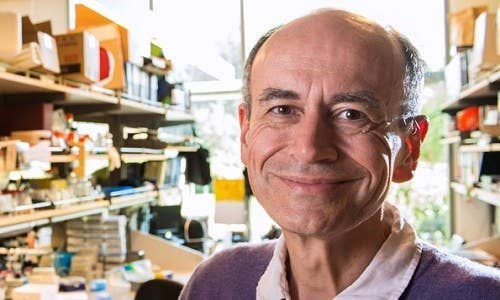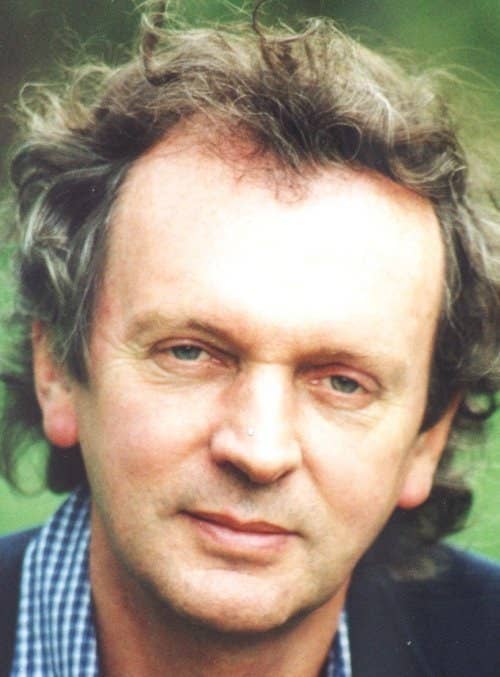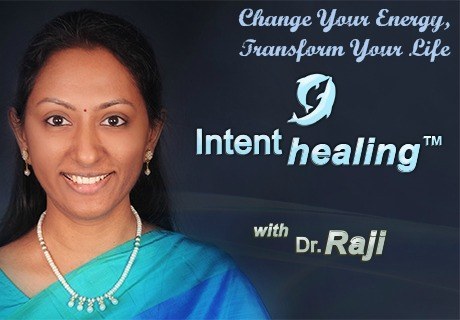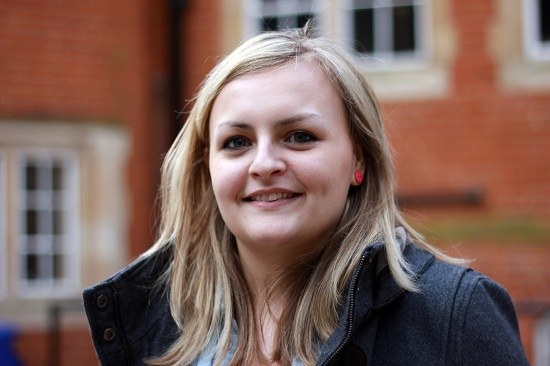Thomas Südhof

"The brain works by neurons communicating via synapses," Dr. Südhof says. "We'd like to understand how synapse communication leads to learning on a larger scale. How are the specific connections established? How do they form? And what happens in schizophrenia and autism when these connections are compromised?"
Dr. Südhof received the award for his work exploring how neurons (brain nerve cells) communicate with one another across gaps called synapses.
Rupert Sheldrake

Dr.Rupert Sheldrake, is one of the world's most innovative scientists, biologist ,author of more than 80 technical papers and ten books and the ex-director of the Perrott-Warrick project for research on unexplained human abilities from Trinity College, Cambridge University.
In his controversial book 'Science Set Free', he questions the very basis of the "Dogmas" that modern day science is continuing to follow in spite of the latest discoveries in various fields of science revealing evidence to the contrary. His question "Should science be a belief system (as it is now) or a method of inquiry?" opens up immense possibilities in the way Evidence Based Medicine (EBM) is likely to be applied in the evaluation of the already existing and emerging solutions in Autism that have come to light through numerous case reports in social media.
True to his vision of the "common" man being a scientist today and participating in scientific studies all over the world, more such cases of autism who have overcome their limitations by methods not yet accepted by mainstream science is bound to reach those looking for solutions in Autism .
His theory of morphic resonance , revelations about the existence of vast amounts of Dark matter and Dark energy making up 96% of reality, and the quantum vacuum fields full of energy yet untapped by existing technologies could hold the key for an energy based solution in Autism.
Rajalakshmi Kandaswamy

Dr.Rajalakshmi Kandaswamy, an Autism Expert, medical doctor and healer from India presents a unique way of demonstrating results in autism and ADHD. Through Remote Healing.Her Intent Healing approach in autism is based on the emerging sciences of Applied Energy Medicine and Applied Intentional Epigenetics.
She has been featured on CNN-IBN for demonstrating a live healing in a patient that was verified by medical specialists. She is the regional representative and country contact of The Institute Of Noetic Sciences (IONS) an NGO in India.Her editorials and case reports in Autism journals are controversial and worth pondering on at the same time.
Dr.Rajalakshmi says " The root cause of Autism is Energy disturbance. Once the energy disturbances are corrected, all the limiting symptoms in autism disappear and the child/person with autism can thrive with their unique gifts and talents".
What makes her approach all the more interesting is that she does not need to meet any person with autism in person in order for the healing to be effective. With the evidences of cases of autism healed through her remote healing approach being presented as case reports in journals, as a healing project in a special school and as live demonstrations in individual cases, this is another person worth watching out for in the autism arena.
James Cusack

Dr.James Cusack is a scientist with autism and has used his own experiences to aid the completion of a major study which challenges some of the most commonly-held beliefs about Autism.He argues that generalizations about people with autism being poorer at interpreting gestures and body language may be exaggerated, and could be overcome by developing their ability to pay attention to signals in their brain which may otherwise go unnoticed.
Dr Cusack says: "Autism is generally associated with poor communication and social skills, which were thought possibly to stem from a difficulty with interpreting other people's gestures and body language.
There are several theories that rely on this notion, but most of these theories are based on very little data so we wanted to test this concept more thoroughly. My own diagnosis and experiences aided the design of powerful tests that could more accurately control for factors not directly linked to autism - such as ensuring test requirements were fully understood and that experiments were conducted in an appropriate environment.
What we found is that the region of the brain (dealing with this info) functions perfectly. Instead, difficulties seem to arise at a later stage of cognition in a different brain system, which informs what we should do in response to an action, often termed the 'executive function' ".
Dr Cusack feels the findings are of great significance as they demonstrate that deficiencies in perception for those with autism may not be as widespread as previously thought – and opens up new possibilities to help people manage the condition.
Hannah Belcher

Diagnosed as a case of Aspergers at 23 years of age, Hannah Belcher, a PhD student at Anglia Ruskin University, is putting the soptlight on the females dealing with autism.
Leading the largest study of females with Autism, psychology researchers are carrying out the first large-scale study into young women with autism – a condition usually viewed as a male syndrome.
Only one fifth of girls are diagnosed with autism before the age of 11 compared to over half of boys. The study, in effect an online screening tool, is being supervised by Dr Steven Stagg and aims to survey 6,000 people in an attempt to understand the scale of how many women are still going undiagnosed.
Hannah said: "The main aim of this research is to help quicken the identification of girls on the spectrum, offer them the support they need and help them achieve their full potential. It's probably the case that a lot of women don't even consider that they might have autism, but instead think they have social problems. Many women who are diagnosed with obsessive compulsive disorder are actually likely to be autistic."
All though by no means exhaustive, this is a list of people in the Autism arena who represent possibilities for the solutions in autism to reach those struggling with the condition on a daily basis.

